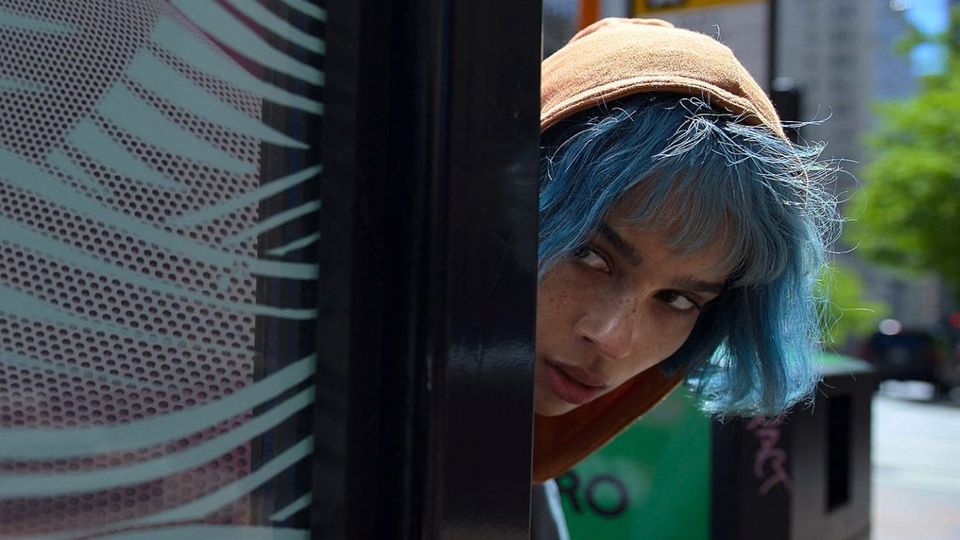agoraphobic nosebleed.

On ›Kimi‹ by Steven Soderbergh.
There’s so much to gain from not going overboard with explaining the technology at the core of movies like this, what with quite a few thrillers and horror movies allowing themselves to get bogged down by that minutiae instead of crafting a better story around it all. As awful as it is to admit, the surveillance state is what it is and the technology that supplements it has been invited into our homes and onto our person by us - there’s no need to explain it further in most of these movies, which is why Kimi feels captivating immediately.
The prescience that could very easily become overbearing doesn’t feel heavy-handed, despite going up against our over-dependence on tech and the aftermath of the COVID19 pandemic and the shift in our workplaces with new working-from-home capabilities. All three subjects could separately make for a solid single movie around how excellently Zoë Kravitz plays her agoraphobic tech worker and the trouble she finds herself in. Instead, Soderbergh manages to grab from all three and weave them into a very realistic and quite worrying thriller, which still moves around between genres and styles because of the choice of score the ever-intriguing Cliff Martinez decided to go for here.
But that, like the simple and well-executed story, as well as Kravitz having no problems with carrying a movie like this on her own, is still intriguing enough to keep both attention and pleasure locked in for the duration. The technological evolution of the last 20 years have lent themselves to stories about surveillance gone haywire and the loss of rights and freedoms in the name of security and safety. This movie explains the predicament we’re collectively in without making the tech in question its main focus, allowing Kravitz to take centre-stage fully and humanise what Soderbergh is filming. This is, of course, only possible because of the fluency with which the audience speaks and understands the language of what is happening in the film - something that could not be said about the true juggernauts of this micro-genre: Francis Ford Coppola’s The Conversation from 1974, and it’s spiritual successor Enemy of the State from 1998. The fear of what people in the FBI and the CIA could do was well-known in the 70’s, and therefore always toeing the line between reverence and revulsion, but the power held within the NSA and other American government entities by the turn of the century wasn’t remotely understood by the general public - who only started to grasp the pervasiveness of surveillance almost 15 years later thanks to whistleblowers.
With 24 years between The Conversation and Enemy of the State, it stands to reason that the topics both films were about changed drastically in the interim. Another 24 years have passed since, which lands us squarely at 2022, and the changes that took decades to solidify last time around only take a year or so to go from introduction to mainstream adoption to obsoletion now. Kimi is clearly cut from the same cloth as The Conversation and Enemy of the State, simple because of the issue of surveillance being front and centre to the story. But it's not so much a spy thriller laying out the ways in which a government spies on its people as something grappling with what the kind of surveillance the two cult classics ostensibly warned about, and what that monitoring could do to a person in a frighteningly short amount of time if they find themselves in the crosshairs - not from the government but global tech companies who exist within loopholes of law and thrive thanks to compromises made with people in power. It’s a twist that precious few could’ve seen coming back when Gene Hackman and his cat begrudgingly helped Will Smith get his life back from corrupt politicians and an overzealous NSA, and it drives home just how terrified Zoë Kravitz has every right to be when Kimi starts derailing her ever-so-carefully managed life.
